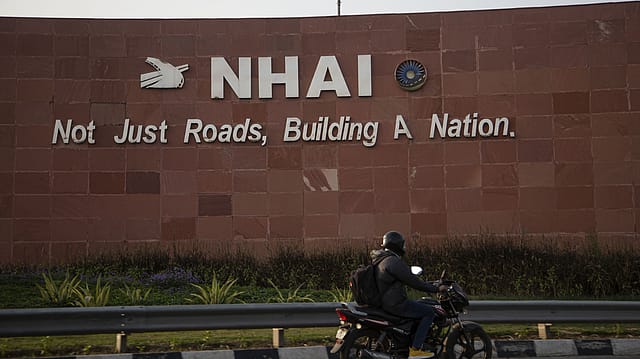NHAI bids may slow down in FY23 on financial closure, land delays: Crisil
ADVERTISEMENT

Crisil Research has highlighted a slew of issues dogging the national highways projects being implemented by the National Highways Authority of India (NHAI), including delays in financial closure and land acquisition, among others. The agency, in a research report issued today, said the contract award by the authority may slow down to 5,000 km annually in FY23 and FY24.
“National Highways Authority of India (NHAI) awarding may slow down to 5,000 km annually over this fiscal and the next, after a sequential rise from merely 2,222 km in fiscal 2019 to 6,306 km in fiscal 2022,” says Crisil.
The agency attributes the likely slowdown in the project award to a limited rise in budgetary support, coupled with higher capex for 70% of high-value expressways currently under construction. These two factors, according to Crisil, could defer NHAI awards under Bharatmala Phase 1 beyond fiscal 2024 — the year construction was originally scheduled to be completed.
“About 40% of detailed project report-ready projects under Bharatmala Phase 1 are yet to be awarded,” the research note says.
The Bharatmala project is the ambitious ₹5,35,000 crore plan kick-started in October 2017 to build a national highway network and sub networks of 34,800 kilo metre (kms). The transport ministry data shows only 8,134 km of the project length has been constructed till now, which is less than 25% of the targeted construction.
The agency also raised concerns on the projects being implemented on the hybrid annuity model (HAM) of highway development, which has been put to use for the last couple of years. Under HAM, the traffic risk is not borne by the developer, who gets a cash construction support of 40%, while the balance 60% debt-equity investment is recovered from the government in form of semi-annual annuity payments.
“Notwithstanding the benefits of HAM, awards under this mode have had their share of challenges. Only 56% of projects awarded over fiscals 2016 to 2018 have been completed, while 37% are still under construction. Of the HAM awards in fiscals 2019 and 2020, 90% are still under construction,” says Crisil.
“Financial closures are being achieved with a 3-4 month delay. More pressingly, 40% of projects have received appointed dates 1.5 years post awarding, indicating land acquisition issues persist. While HAM provides for automatic de-scoping and de-linking clauses, cushioning projects from being stuck in the under-construction phase, delays for these approvals have been observed,” says the Crisil report.
“A few execution concerns have surfaced, too. Though 75% of projects were awarded to large players over fiscals 2016 to 2020, one-fourth of the projects have been delayed by two years beyond their original scheduled commercial operations date, with only 55% physical progress,” it says.